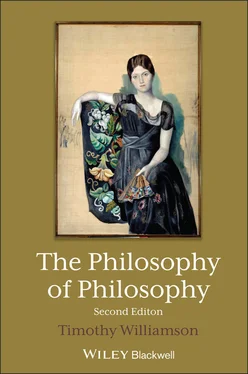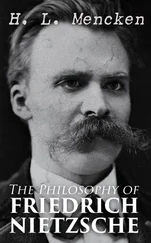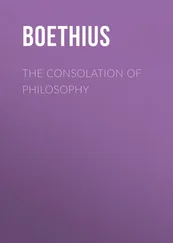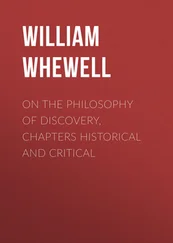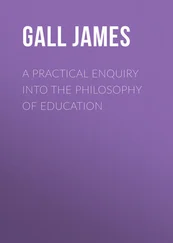The word “theme” is used with deliberate vagueness. It does not mean “subject matter,” for the linguistic turn was not the attempted reduction of philosophy to linguistics. The theme of a piece of music is not its subject matter. Those who viewed philosophy as an activity of dispelling confusions of linguistic origin did not see it as having a subject matter in the sense in which a science has a subject matter. But merely to regard linguistic analysis as one philosophical method among many is not yet to have taken the linguistic turn, for it is not yet to regard language as central. We will be more precise below.
There is an increasingly widespread sense that the linguistic turn is past. We will ask how far the turn has been, or should be, reversed.
Language has been regarded as central to philosophy in many different ways, which cannot all be treated together. A history of the many different forms that the linguistic turn took would be a history of much of twentieth-century philosophy. That is a task for another book, by another author. Self-indulgently, I will use a thin slice through history to introduce the contemporary issues by briefly considering some of my predecessors in the Wykeham Chair of Logic at Oxford.
A. J. Ayer was the first holder of the Chair to take the linguistic turn. 1In 1936, back from Vienna and its Circle but not yet in the Chair, he announced an uncompromisingly formal version of linguistic philosophy:
[T]he philosopher, as an analyst, is not directly concerned with the physical properties of things. He is concerned only with the way in which we speak about them. In other words, the propositions of philosophy are not factual, but linguistic in character – that is, they do not describe the behaviour of physical, or even mental, objects; they express definitions, or the formal consequences of definitions.(Ayer 1936: 61–2)
Ayer traced his views back ultimately to the empiricism of Berkeley and Hume (Ayer 1936: 11). His contrast between definitions of words and descriptions of objects is, roughly, the linguistic analogue of Hume’s contrast between relations of ideas and matters of fact. For an empiricist, the a priori methods of philosophy cannot provide us with knowledge of synthetic truths about matters of fact (“the behaviour of physical, or even mental, objects”); they yield only analytic truths concerning relations of ideas (“definitions, or the formal consequences of definitions”). A rather traditional empiricism later overshadowed the linguistic theme in Ayer’s work.
Ayer was the predecessor of Sir Michael Dummett in the Wykeham Chair. Dummett gave a much-cited articulation of the linguistic turn, attributing it to Frege:
Only with Frege was the proper object of philosophy finally established: namely, first, that the goal of philosophy is the analysis of the structure of thought ; secondly, that the study of thought is to be sharply distinguished from the study of the psychological process of thinking ; and, finally, that the only proper method for analysing thought consists in the analysis of language . … [T]he acceptance of these three tenets is common to the entire analytical school.(Dummett 1978: 458)
On this view, thought is essentially expressible (whether or not actually expressed) in a public language, which filters out the subjective noise, the merely psychological aspects of thinking, from the intersubjective message, that which one thinks. Dummett’s own corpus constitutes one of the most imposing monuments of analytic philosophy as so defi ned. Unlike Ayer, he does not describe philosophical claims as defi nitions. Unlike Rorty, he characterizes the linguistic turn as involving distinctive claims about the subject matter of philosophy, not only about its method. On Dummett’s view, Frege’s insight replaced epistemology by philosophy of language as first philosophy. But this methodological innovation is supposed to be grounded in the account of the proper object of philosophy.
Elsewhere, Dummett makes clear that he takes this concern with language to be what distinguishes “analytical philosophy” from other schools (1993: 4). His account of its inception varies slightly. At one points (1993: 5), he says: “[A]nalytical philosophy was born when the ‘linguistic turn’ was taken. This was not, of course, taken uniformly by any group of philosophers at any one time: but the first clear example known to me occurs in Frege’s Die Grundlagen der Arithmetik of 1884.” Later (1993: 27), we read: “If we identify the linguistic turn as the starting-point of analytical philosophy proper, there can be no doubt that, to however great an extent Frege, Moore and Russell prepared the ground, the crucial step was taken by Wittgenstein in the Tractatus Logico-Philosophicus of 1922.” Presumably, in Frege the linguistic turn was a fitful insight, in Wittgenstein, a systematic conception.
That “analytical philosophers” in Dummett’s sense coincide with those usually classified as such is not obvious. Some kind of linguistic turn occurred in much of what is usually called “continental [supposedly non-analytic] philosophy.” That Jacques Derrida did not subscribe in his own way to Dummett’s three tenets is unclear: if some stretching of terms is required, it is for the later Wittgenstein too. Conversely, Bertrand Russell did not subscribe to the three tenets, although often cited as a paradigm “analytical philosopher.” Over the past 20 years, fewer and fewer of those who would accept the label “analytic philosophy” for their work would also claim to take the linguistic turn (I am not one of those few). Even philosophers strongly influenced by Dummett, such as Gareth Evans, Christopher Peacocke, and John Campbell, no longer give language the central role he describes. For Dummett, they belong to a tradition that has grown out of “analytical philosophy” without themselves being “analytical philosophers” (1993: 4–5). In effect, they aimed to analyze thought directly, without taking a diversion through the analysis of language. In the 1980s it became commonplace in some circles to suggest that the philosophy of mind had displaced the philosophy of language in the driving seat of philosophy.
For philosophers of mind who accepted Jerry Fodor’s (1975) influential hypothesis of a language of thought, the priority of thought to public language did not imply the priority of thought to all language, since thought itself was in a language, the brain’s computational code. In principle, someone might combine that view with Dummett’s three tenets of analytic philosophy, contrary to Dummett’s intention; he did not mean a private language. Moreover, the first-personal inaccessibility of the language of thought makes such a version of the linguistic turn methodologically very different from the traditional ones.
For those who deny the methodological priority of language to thought, the minimal fallback from Dummett’s three tenets is to reject the third but maintain the first two. They assert that the goal of philosophy is the analysis of the structure of thought, and that the study of thought is to be sharply distinguished from the study of the psychological process of thinking, but deny that the only proper method for analysing thought consists in the analysis of language. If thought has constituents, we may call them “concepts.” On this view, concepts take the place of words in Dummett’s analytical philosophy.
In practice, linguistic philosophers were often happy enough to speak of concepts rather than words, for they regarded a concept as what synonymous expressions had in common; their primary interest was in the features common to synonyms, not in the differences between them. It is therefore not too misleading to describe as conceptual philosophers those who accept Dummett’s first two tenets – that the goal of philosophy is the analysis of the structure of thought, and that the study of thought is to be sharply distinguished from the study of the psychological process of thinking – whether or not they accept the third. We may also describe them as doing conceptual philosophy , and as having taken the conceptual turn .
Читать дальше
